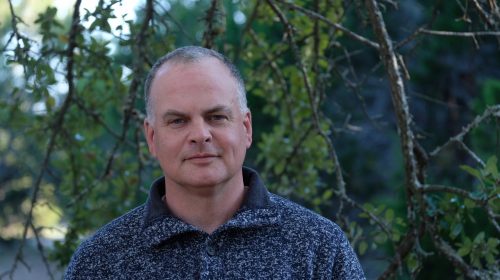Dr. Kevin Dalby Releases a New Book Chapter on ERK Docking Site Inhibition
Kevin Dalby, professor at The University of Texas in Austin, specializes in cancer research and drug discovery. The doctor has recently published an innovative chapter, further revealing the case for ERK docking site inhibition.

AUSTIN, Texas – September 27, 2020 /MarketersMedia/ —
Kevin Dalby, Austin cancer research doctor and a professor of Chemical Biology and Medicinal Chemistry at The University of Texas, recently added to a book, Next Generation Kinase Inhibitors, a new book chapter titled “A Toolbox of Structural Biology and Enzyme Kinetics Reveals the Case for ERK Docking Site Inhibition.” This innovative chapter sheds light on new insights into ERK signaling.
Dalby has been passionate about the “why” of chemical reactions since his time as a student at the University of Cambridge, where he graduated with a Doctor of Philosophy degree in Organic Chemistry. His educational journey has led him to focus his research on cancer cell signaling mechanisms to develop targeted therapeutics. Dalby’s other research areas actively participate in studying include biochemistry, cancer, cell biology, chemical biology, drug discovery & diagnostics, and enzymology.
In his latest book chapter, Dalby discusses a more in-depth perspective on extracellular signal-regulated kinase (ERK) and what his group has been able to characterize through a combination of structural and kinetic studies. ERK is a mitogen-activated protein kinase (MAPK) that conciliates proliferation, differentiation, cell motility, and survival, cellular processes. Many cancers are believed to promote tumorigenesis through dysregulation of the ERK signaling pathway, and studies imply it in various other proliferative diseases.
Protein-protein interactions via enzyme-docking sites help create signal specificity and guide ERK to subsequent binding partners or substrates, all done within the ERK signaling pathway. The D- and F- recruitment sites (DRS and FRS) are two investigated docking sites; ERK holds clear-cut from its catalytic site. Over an extensive period, Dalby and his group have characterized the DRS and FRS by amalgamating structural and kinetic studies, including computational and biochemical techniques specifically basing around a model ERK substrate EtsΔ138 (residues 1–138 of the transcription factor Ets-1).
This research and comprehensive studies are vital components of a developing attempt to expound innovative awareness and understanding surrounding ERK signaling. Such studies’ goal is also to assess each binding site’s role in specific ERK interactivity. Moreover, there is a chance to provide therapeutic benefit in disease states driven by ERK signaling through the evolution and growth of inhibitors that target these docking sites, contributing an avenue to impede both catalytic and noncatalytic functions ERK. In Dalby’s newest chapter, he and his team go into great detail on the characteristics and attributions of the DRS and FRS of ERK, the parts they play in the phosphorylation of EtsΔ138, and the status, mechanisms, and implications of aiming these sites with inhibitors.
About Kevin Dalby
Dr. Kevin Dalby is a chemical biology professor and medicinal chemistry professor currently working on cancer drug discovery. At the College of Pharmacy at The University of Texas, he examines nature and cancer mechanisms to develop new treatments and teach and motivate students to conduct research. Dalby is optimistic about the future of cancer treatments.
Reach out to Kevin Dalby on his website: https://www.kevindalby.com/
Contact Info:
Name: Dr. Kevin Dalby
Email: Send Email
Organization: The University of Texas at Austin
Address: 107 West Dean Keaton St. BME 6.202, Chemical Biology & Medicinal Chemistry The University of Texas at Austin, Austin TX 78712-1081
Phone: 512-471-9267
Website: https://www.kevindalby.com/
Source: MarketersMedia
Release ID: 88978625